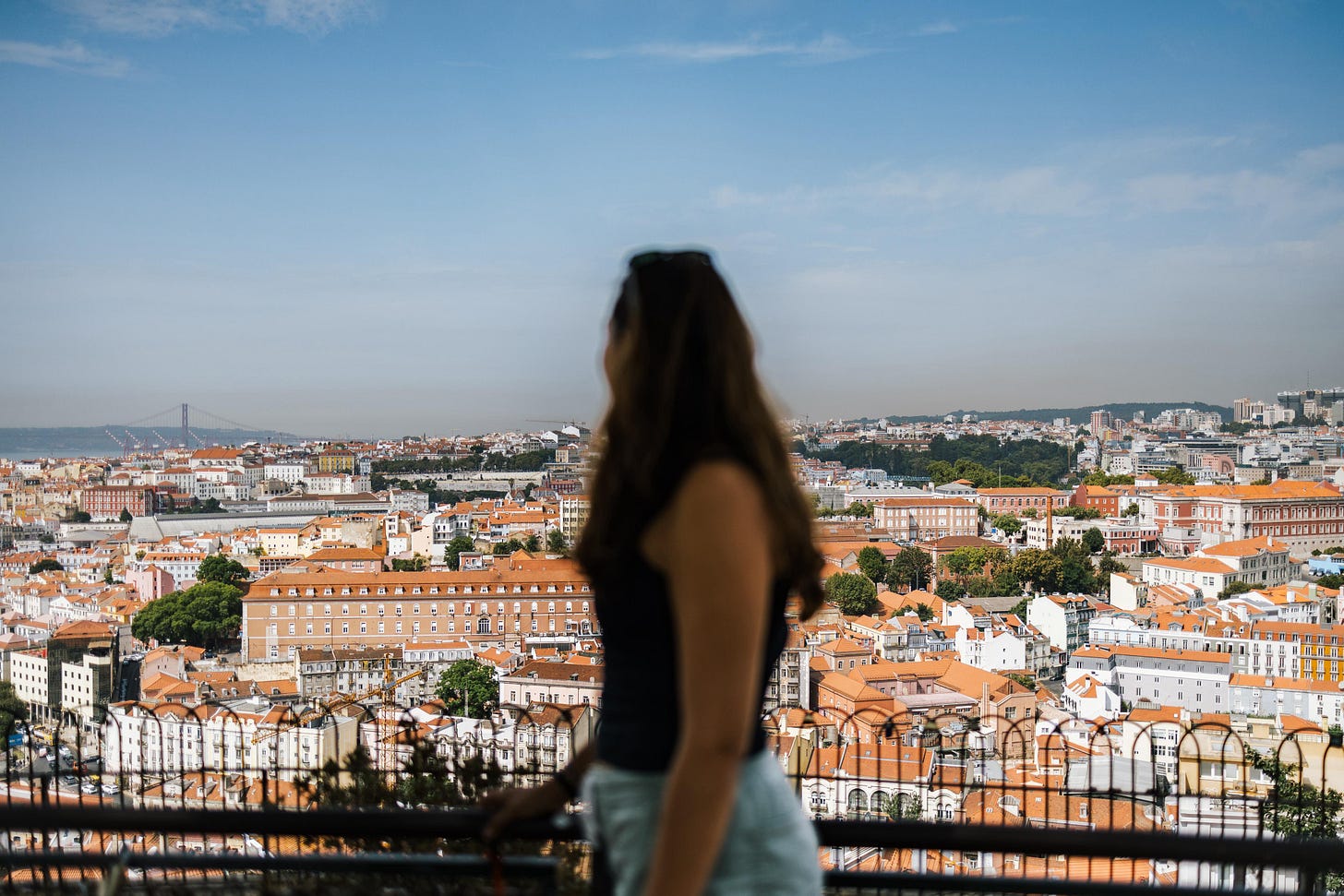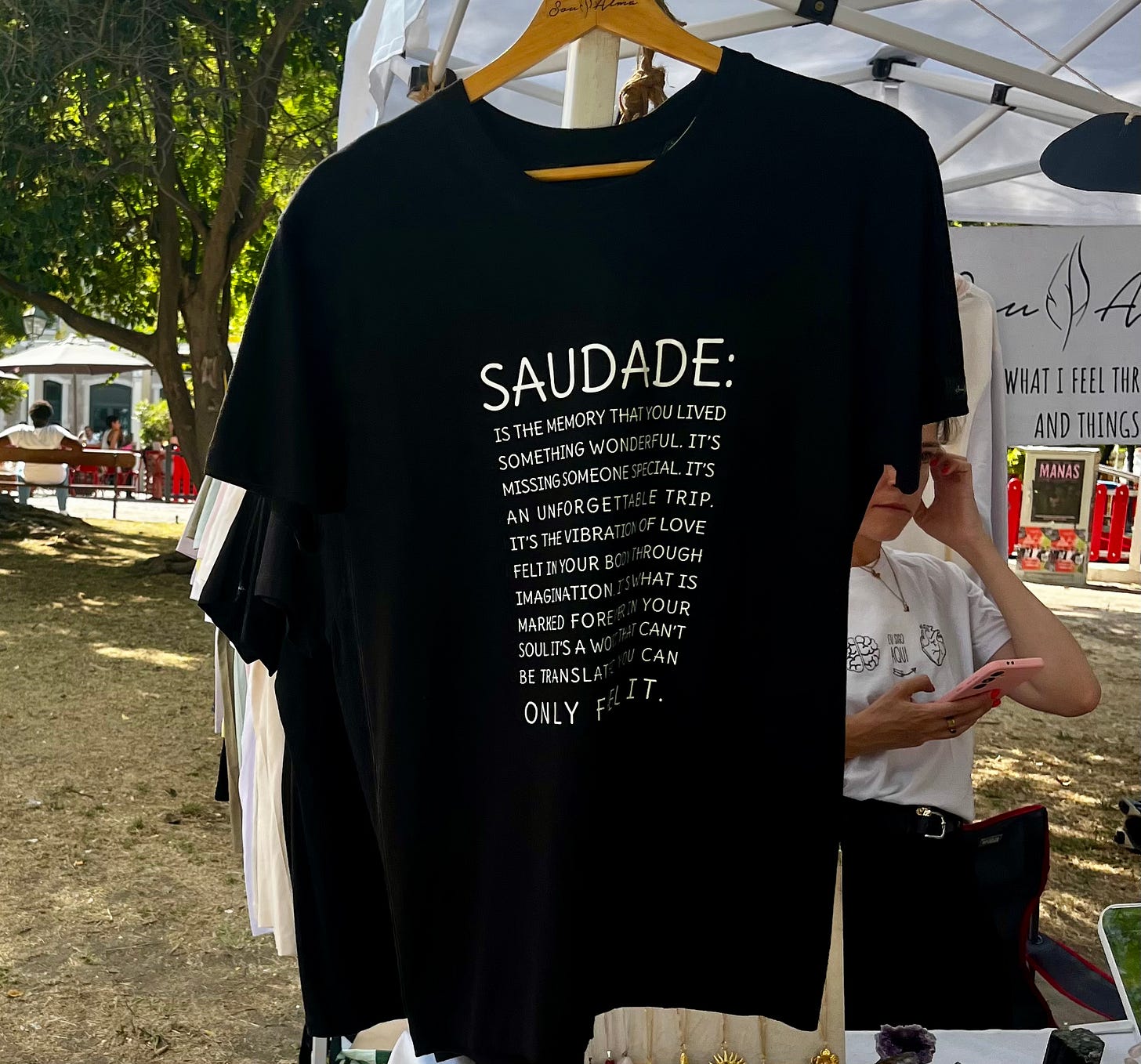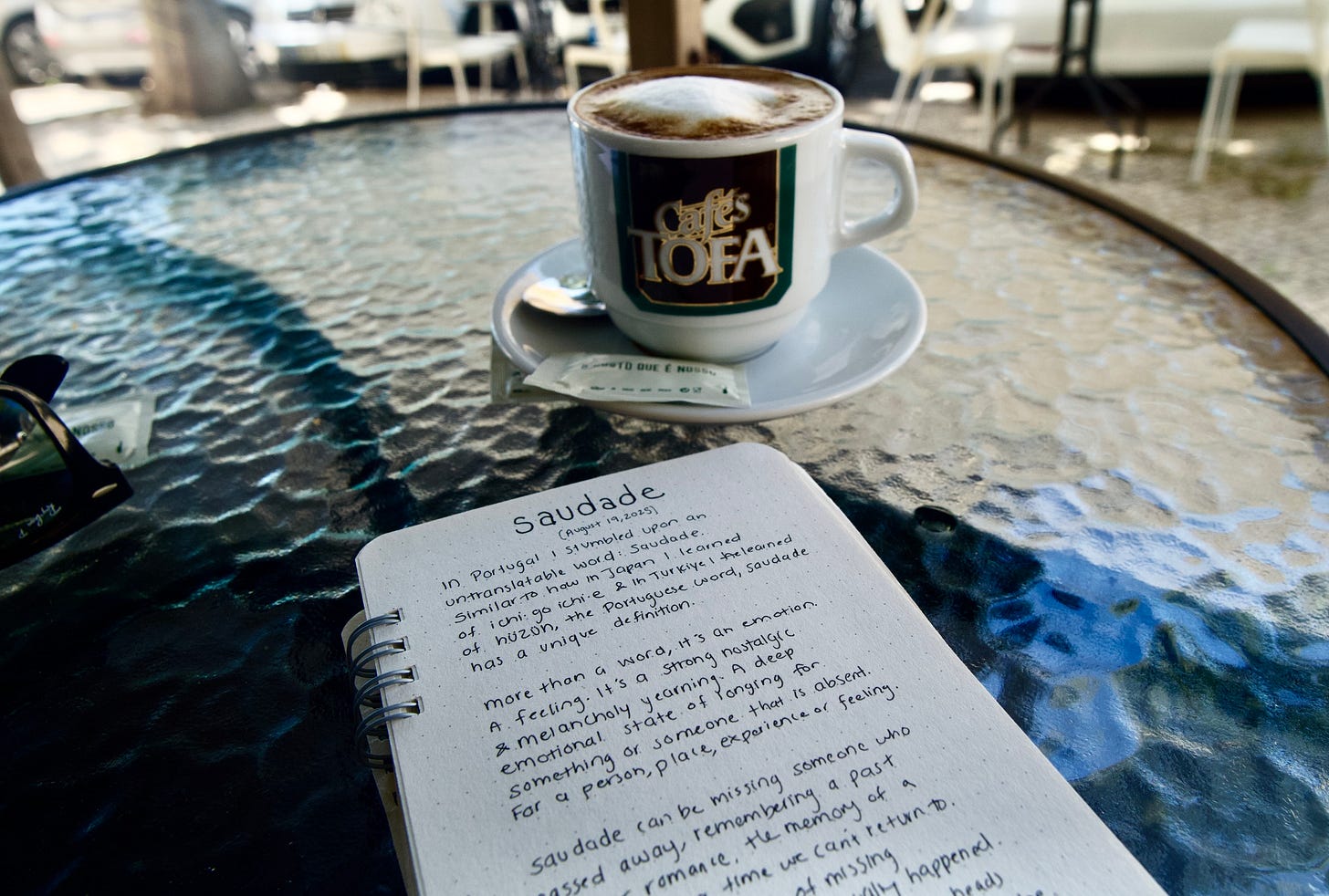Saudade: This Portuguese Word Describes What We Feel but Cannot Name
A word with no translation, yet one we can all relate to
Do you ever wish there was a word for a complex emotion you are feeling but can’t describe? The beauty of travel is that we often encounter words from other languages that can help us define and make sense of our feelings. Saudade is one of those.
I first spotted this Portuguese word written on book covers, T-shirts, and as graffiti tattooed on the walls throughout Lisbon. But it wasn’t until my last day in Lisbon that I looked up the definition. Now I can’t believe I almost left the country without learning its meaning.
Saudade is more than a word; it’s an emotion. It’s a strong, nostalgic, and melancholy yearning. A deep emotional state of longing for a person, place, experience, or feeling that is absent.
It’s when we miss someone who passed away, the memory of a fun trip, a past romance, the echo of our childhood, the sounds and smells of our hometown, and any point in time we cannot return to. But saudade isn’t just about the past; it can also be the feeling of missing something that never actually happened. The scenario we imagined in our heads for so long that never came to be.
.This word is a bit of a contradiction. How can we feel grateful for a memory yet endure the pain or sadness that comes from thinking about it longingly?
“Saudade is a pleasure you suffer, an ailment you enjoy,” is how Portuguese writer Manuel de Melo described it.
The world is full of words and expressions that often don’t have a direct translation into other languages because they carry cultural nuance or emotional meaning that doesn’t translate easily. This is one of my favorite aspects of travel: learning words used in different cultures to label feelings and emotions that we often struggle to express even in our own language.
For instance, in Japan, I learned the concept of ichi-go ichi-e, which can be explained as “one time, one meeting.” The fact that in our lives, there are experiences that only happen once. Or in Turkey, I learned of Istanbul’s hüzün, which was popularized by the writer Orhan Pamuk. It can be interpreted as the black and white melancholy often used to describe Istanbul’s mood.
Saudade, to me, is almost a mix of both. Hüzün acknowledges the nostalgia and ache of other times, while ichi-go ichi-e reminds us to embrace the transit moments with gratitude. Together, we find both joy and sorrow in memories that will never be repeated.
To the Portuguese, saudade is more than nostalgia. While nostalgia is looking back and feeling the loss of something, saudade holds space for both a loss in the past, present, or future. It recognizes that the ache for missing someone or something is real, but we can face it with tenderness and gratitude. That while missing deeply can hurt, it’s also proof that you’ve loved deeply. It’s the bittersweet mark of having loved a person or loved a moment in time.
All of us, no matter where we are from, can probably relate to this contradicting feeling. It’s the feeling of pain in the memory of joy. It’s holding onto sadness with a smile. So much complexity in one word.
As I write this, I’m at my favorite cafe in Lisbon, Bemposta, writing and people-watching while enjoying my last day in the city. I feel saudade as I sit here writing and drinking an abatanado pingado (a cafe Americano with a splash of milk) while chatting with the owner, Felipe. Even while living the moment, I’m aware of the sadness in it because I know I will miss it. But this feeling of sadness only happens because there was an equal amount of joy. The happier the memory, the deeper the sorrow and melancholy once it’s gone. This is saudade.
Saudade isn’t closure, but perhaps it is a concept that gives us peace. That we aren’t alone in our struggles of sadness, grief, longing, and happiness at memories past, present, and future. That holding happiness and sorrow in the same hand is possible and actually very common. That we aren’t alone in our complex human feelings and emotions. Perhaps there is solace simply in knowing that a word exists to embrace the murky landscape of the mind, giving shape to what we so often feel but cannot name.
Can you think of a saudade feeling that’s both sweet and painful?








The first time I read about Saudade, I felt so seen!! I’m glad to see I’m not the only one who’s been moved by this beautiful language 💖
Hi Maria, beautifully put. May I cross-post on Portugal Calling?